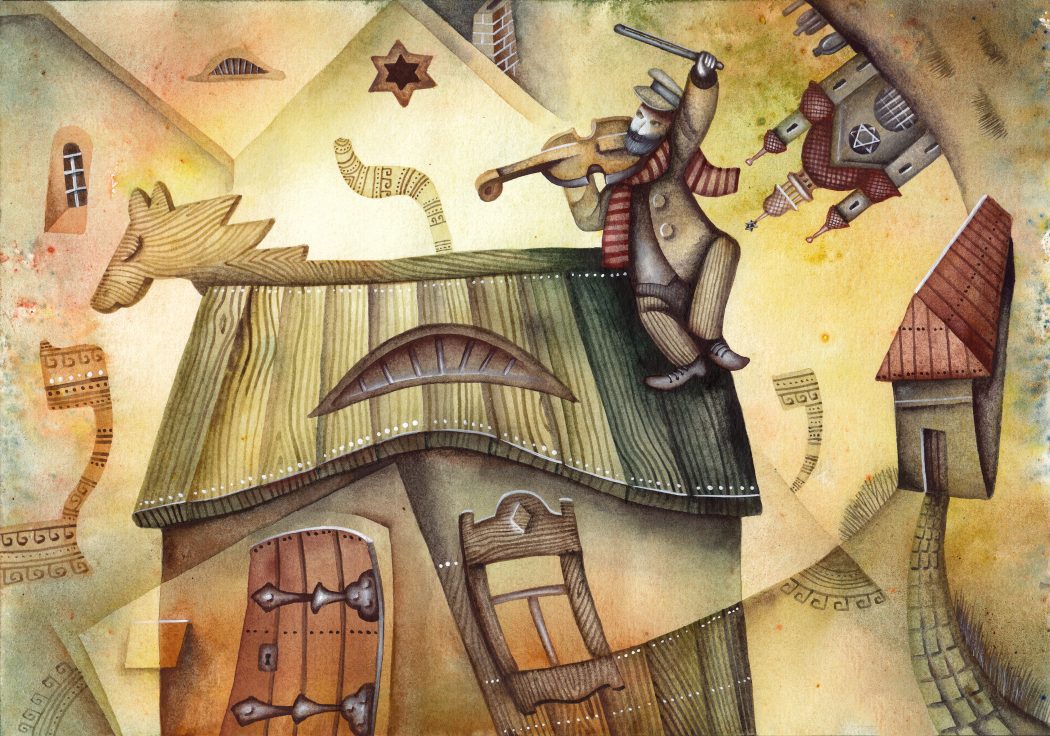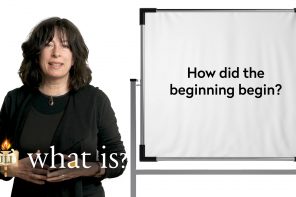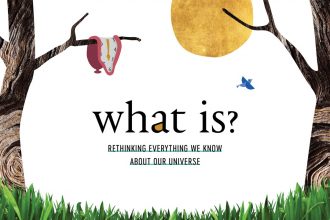L‑rd who made the lion and the lamb
You decreed I should be what I am
Would it spoil some vast eternal plan
If I were a wealthy man?
Philosophical profundity crops in up in funny places. Fiddler on the Roof is a sentimental, feel-good dollop of schmaltz that has warmed Jewish hearts for decades. Its enormous popularity has nothing to do with metaphysical content. The videocassettes are not rented by scholars in quest of ontological truths. Nonetheless, there it is, put into the mouth of Tevye the milkman by an unwitting lyricist, garnished with “yubba-buh”s and accompanied by an antic little jig: “Would it spoil some vast eternal plan / if I were a wealthy man?”
Tevye is no theologian. He is obviously not interested in discerning the Almighty’s ways. The question is rhetorical, intended merely as a little dig at G‑d for His apparent indifference to Tevye’s poverty. The proposition that the foundation of the cosmos would be shaken in some way if Tevye should come into a few rubles is clearly absurd, or so it would seem. In fact, Tevye has raised one of the most enigmatic and recondite issues in religious thought: What, if anything, is the meaning of finite physical existence? The impecunious milkman would undoubtedly be shocked to learn that the answer to his question is: yes, it would spoil some vast eternal plan if he were a wealthy man.
Tevye’s query is really the following: I inhabit a minuscule particle situated somewhere in an endless universe teeming with countless stars, galaxies and planets of mind-boggling proportions. I share this tiny speck with six billion fellow humans. I will live for no more than 80 or 90 years, which in cosmic terms is less than a blink of an eye. I am utterly dwarfed by the endlessness of time and the boundlessness of space. How is it conceivable that what I do, or what happens to me, is of any consequence whatsoever?
In order to address this question, we must first deal with a misconception that is deeply ingrained in the human psyche—the size fallacy. Briefly put, size matters. A child stubs his toe getting out of bed in the morning and cries in pain. On the same day a bomb scare at Kennedy International Airport delays flights and inconveniences thousands of travelers. Which of these two stories is likely to make the front page of the New York Times? Since, in either case, nothing of any lasting consequence occurred, why is the airport closure news and the toe-stubbing beneath notice? Why does the conquest of Mount Everest still excite the imagination, whereas the scaling of half a dozen more challenging peaks attracts no attention at all? Why are the Eiffel Tower, the Rock of Gibraltar and the Empire State Building major tourist attractions? Why should anyone spend time and money in order to see a stack of girders, a stone or an office building? The answer is that all of the above are big, and people instinctively (and mindlessly) equate size with significance.
To continue reading, please click here.
Published with permission from Chabad.org.


